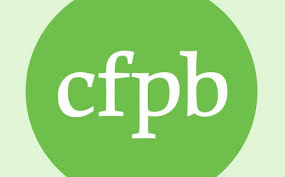CFPB Targets Auto Financing for Enforcement
 The Consumer Finance Protection Bureau continues to spread its wings in the enforcement arena. It is an agency born and confined in political controversy. The Director of the CFPB’s recess appointment and legal status is up in the air and on appeal before the courts. Republicans on Capitol Hill continue to conduct oversight and pressure the CFPB on its regulatory authority and actions.
The Consumer Finance Protection Bureau continues to spread its wings in the enforcement arena. It is an agency born and confined in political controversy. The Director of the CFPB’s recess appointment and legal status is up in the air and on appeal before the courts. Republicans on Capitol Hill continue to conduct oversight and pressure the CFPB on its regulatory authority and actions.
Despite all of these obstacles, the CFPB has acted carefully and deliberately to enforce consumer protection laws. It recruited a strong leadership team and has carefully put in place procedures for supervisory examinations and enforcement actions.
The CFPB also has demonstrated shrewd political enforcement strategies, focusing first on the mortgage industry, especially broker, then moving to credit card companies and abusive conduct, and then focusing on debt collectors. There is strong public support for oversight and enforcement against these industries – the American public has long resented consumer practices in these industries and the CFPB has carefully enforced the law and regulations against indefensible practices.
Recently, the CFPB has started to focus on auto financing companies. On March 21, 2013, the CFPB issued a long-awaited guidance bulletin on auto financing with the fair lending requirements of the Equal Credit Opportunity Act and its implementing regulation, Regulation B, for “indirect” auto lenders that permit dealers to increase consumer interest rates and that compensate dealers with a share of the increased interest revenues.
Last week, it was reported that the CFPB issued civil subpoenas (“Civil Investigative Demands” or “CIDs”) to a number of banks and captive motor vehicle finance companies relating to the sale of optional extended warranties, insurance and other “add-on” products. According to press reports, the CIDs request data on the various add-on products sold by dealers and financed in retail installment sales transactions.
The CFPB’s enforcement action in the credit card industry focused on similar “add-on” products. In July 2012, the CFPB settled an enforcement action against Capital One requiring a refund of approximately $140 million to 2 million credit card customers whom it allegedly misled into buying optional add-on products. The order also required Capital One to pay a $22 million penalty to a civil penalty fund.
 Auto finance companies and banks need to conduct a deep review of their lending practices, especially with regard to add-on features which may be sold during a transaction. For each of these add-on products, auto finance companies should make sure that the consumer practices and information for these add-on features are robust and transparent. If they are not, auto finance companies should remediate the issue as soon as possible, and even consider terminating such add-ons if there is no possible rationale to support continued offering of the service.
Auto finance companies and banks need to conduct a deep review of their lending practices, especially with regard to add-on features which may be sold during a transaction. For each of these add-on products, auto finance companies should make sure that the consumer practices and information for these add-on features are robust and transparent. If they are not, auto finance companies should remediate the issue as soon as possible, and even consider terminating such add-ons if there is no possible rationale to support continued offering of the service.
In addition to the add-on issue, auto finance companies face a serious risk with respect to ECOA compliance. The CFPB has announced that it will launch enforcement actions against auto finance companies when it has evidence of “disparate treatment” and “disparate impact” as an indication of discrimination based on race, color, religion, national origin, sex, marital status, age, receipt of income from any public assistance program, or the exercise, in good faith, of a right under the Consumer Credit Protection Act.
Indirect auto finance companies provide financing through auto dealers. (The CFPB has no direct supervisory authority over auto dealers). The CFPB has taken the position that indirect auto lenders may be liable for the lending practices of auto dealers under the auto finance company’s markup pricing and compensation policies. Additionally, an indirect auto lender may be on notice of a dealer’s discriminatory conduct.
As background, auto dealers request financing from third party, indirect financing companies. Many indirect auto lenders allow dealers to mark up the interest rate above an indirect auto lender’s “buy” rate (interest rate to the auto dealer for resale to consumer). The CFPB believes that some indirect auto lenders have policies that allow auto dealers to mark up lender-established buy rates and that compensate dealers for those markups in the form of reserve (collectively, “markup and compensation policies”). Because of the incentives these policies create, and the discretion they permit, the CFPB believes there is a significant risk that they will result in pricing disparities on the basis of race, national origin, and potentially other prohibited bases.
Because the CFPB cannot directly regulate auto dealer consumer practices, the CFPB is creatively extending its authority over indirect auto finance companies to impose liability for their auto lending portfolio if the portfolio reflects disparate treatment and/or disparate impact. Thus, an indirect auto lender’s markup and compensation policies may result in liability under the ECOA.
The CFPB Guidance outlines specific compliance steps that indirect auto financing companies should take, including but not limited to: (1) imposing controls on dealer markup and compensation policies, and monitoring those policies; (2) eliminating dealer discretion to mark up buy rates and fairly compensating dealers using another mechanism, such as a flat fee per transaction, that does not result in discrimination; (3) adopting and disseminating an up-to-date fair lending policy statement; (4) regular fair lending training for all employees as well as all officers and Board members; (5) ongoing monitoring for compliance with fair lending policies and procedures; (6) ongoing monitoring for compliance with other policies and procedures that are intended to reduce fair lending risk (such as controls on dealer discretion); (7) review of lending policies for potential fair lending violations, including potential disparate impact; (8) regular analysis of loan data for potential disparities on a prohibited basis in pricing, underwriting, or other aspects of the credit transaction; (9) regular assessment of the marketing of loan products; and (10) meaningful oversight of fair lending compliance by management.















